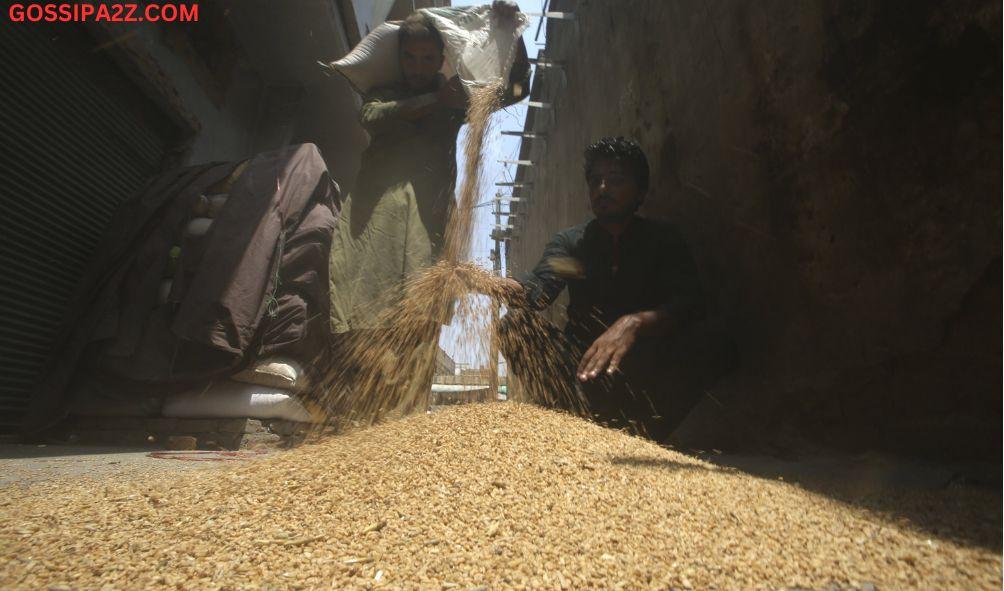Food Price Surge after Black Sea Grain Deal Collapse
Global food prices increased last month due to Russia’s withdrawal from an agreement that permitted the unhindered movement of ships transporting grain from Ukrainian ports.
On Friday, the Food and Agricultural Organization (FAO) of the United Nations reported that the global Food Price Index increased by 1.3% in July when compared to the previous month.
This marks only the second rise in a year that had been characterized by consistent decreases in prices since the grain agreement was established.
The monthly indicator, which monitors various food products, remains nearly 12% lower than its level in July 2022.
However, the choice of Russia to exit the agreement supported by the United Nations resulted in increases in the costs of grains and sunflower oil.
The agreement had been extended on three occasions, yet Russia had consistently issued warnings about withdrawing from it. Their rationale was centered on their claim of encountering obstacles in exporting their goods.
In the previous month, Russian President Vladimir Putin followed through on those warnings and stated that the primary objective of the agreement, which was to provide grain to countries requiring assistance, had not been achieved.
Putin said last week that Russia could replace Ukrainian grain exports to “the most needy African countries,” adding that shipments of free grain to six nations, including Somalia and Eritrea, would happen in the next four months.
ALSO READ: Niger Junta Enlists Russian Mercenary Group Wagner for Defense
Vegetable oils in focus
The Food Price Index experienced a recovery due to a 12% increase in the cost of vegetable oils from the previous month. This rise was influenced, at least in part, by the upsurge in worldwide crude oil prices, as stated by the agency.
Fluctuations in crude oil prices can impact the cost of vegetable oil due to its utilization in the manufacturing of biofuels.
“International sunflower oil prices rebounded by more than 15% month-on-month, primarily underpinned by renewed uncertainties surrounding the exportable supplies out of the Black Sea region,” the FAO said in a statement.
As per the United Nations, Ukraine stands as the largest contributor to the global sunflower oil export market, responsible for 46% of total exports.
The agency mentioned that worries about the declining output of palm oil in Southeast Asia, as well as soybean and rapeseed oil in North America, have additionally supported price increases.
The global wheat price index of the FAO, which contributes to its wider Food Price Index, experienced a 1.6% surge in July compared to the previous month. This marked its initial monthly rise in nine months.
The increase in prices in recent weeks can be attributed to the Russian actions targeting the port facilities in Ukraine after the breakdown of the grain agreement. These two nations play important roles in worldwide supply chains.
However, the cost of wheat remains 46% lower compared to the peak it reached in February 2022, right after Russia’s complete invasion of Ukraine.
ALSO READ: Putin Reveals Reasons for Russia’s UN Grain Deal Exit
Risk of hunger
The global food markets have experienced increased stability due to the importance of the Black Sea initiative following the commencement of the war in February of the previous year. This has been especially beneficial for less affluent nations that depend extensively on grain imports from that area.
According to the Organisation for Economic Co-operation and Development, Ukraine held the position of the world’s fifth-largest wheat exporter and contributed 10% of global wheat exports before the war.
Gro Intelligence, an agricultural data company, states that Ukraine is part of the global top three nations that export barley, maize, and rapeseed oil.
According to United Nations data, nearly 33 million metric tons of food were permitted to be exported through Ukrainian ports under the agreement.
“With approximately 80% of East Africa’s grain being exported from Russia and Ukraine, over 50 million people across East Africa are facing hunger,” Shashwat Saraf, regional emergency director for East Africa at the International Rescue Committee, said in a statement in early July.
Food Price Surge after Black Sea Grain Deal Collapse
